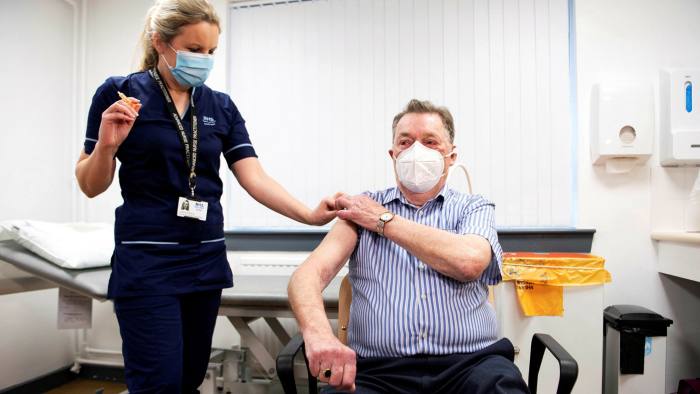The pandemic’s biggest tests still lie ahead

Be the first to know about every new Coronavirus story
The darkest hour, it is said, is always before the dawn. Just when vaccines had brought hope of a gradual loosening of restrictions and return to some kind of normality within months, the emergence of at least two more contagious variants of coronavirus means many populations instead face tighter lockdowns — with all the human and economic damage they bring. Pressures on healthcare systems, and deaths, may exceed those in the bleakest days of the first wave nine months ago. The first part of this year is set to look very different from what was expected even a few weeks ago.
Scientists had always known the virus would mutate. What they did not expect were mutations that were so extensive, or brought such rapid and sizeable changes in impact. The variant ripping through much of the UK — and already found in 25 countries — contains a striking 17 changes in its genomic code that might alter its behaviour. That helped it to supplant its predecessors and spread rapidly even during England’s November national lockdown. A variant found in South Africa has three meaningful changes to its spike protein that also help it to spread much more quickly — and produce a higher viral “load” among victims.
For now, the variants do not seem to have higher mortality rates — though, arithmetically, higher transmission rates left unchecked will lead to more deaths. Neither variant is thought to be more resistant to existing vaccines, though scientists worry more about the South African strain. The creator of the BioNTech/Pfizer vaccine has said the jab can be modified to fight mutant strains within six weeks. But even that would cause crucial delays.
One implication is that far greater international vigilance is needed to spot mutations quickly. Unlike many areas of virus control, this is one in which the UK is a leader, having carried out almost half of all global genomic surveillance of coronavirus to date. South Africa, too, has strong capabilities. There may be similar variants elsewhere, already pushing up transmission rates but still to be identified. Other advanced countries including France, the US and even Germany have done far less monitoring — but could acquire the capability for relatively limited cost.
The second implication is that those economies that can afford to should focus on a two-pronged strategy: rolling out vaccinations as rapidly as possible, while maintaining tight lockdowns. The faster vulnerable members of society can be inoculated, the sooner restrictions can be eased. But the early stages of vaccination are also now a moment of heightened danger. Some scientists worry that a partially immunised population and continued rapid transmission together create the conditions and evolutionary pressure for vaccine-resistant strains to emerge. Here, Britain’s decision to give vaccine doses to as many people as possible, at the risk of delaying booster shots — though supported by government advisers — has split scientific opinion and put it on a limb internationally.
The tougher restrictions announced in England, Scotland and many parts of Europe are correct and inevitable. Governments have rightly striven to balance protecting lives and health systems with protecting the economy. Faced with such highly contagious strains, however, anything short of tight lockdowns risks intolerable death tolls and only delays the moment when vaccines tip the balance and business and normal life can begin to resume. A finishing line of sorts is tantalisingly in sight. Yet reaching it will require a further, costly, test of endurance and resolve.
No comments:
Post a Comment